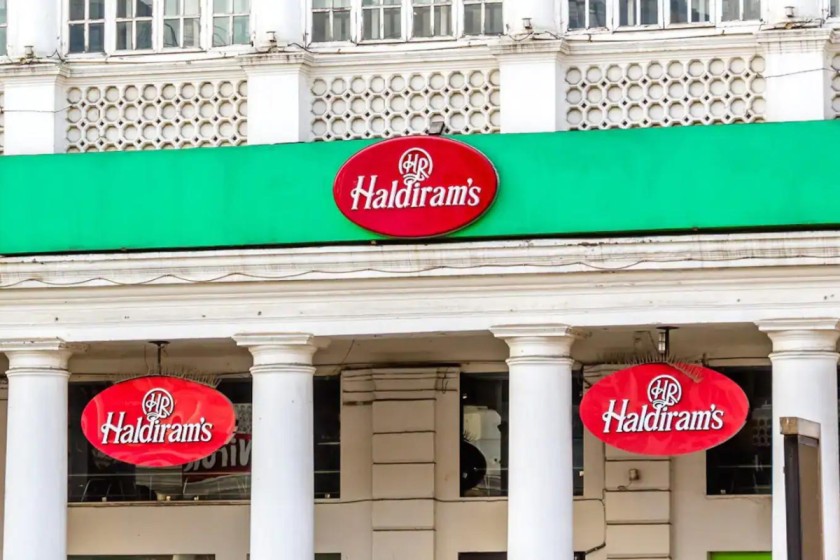- May 17, 2024
Haldiram’s potential sale will eliminate another Made-in-India brand

If indeed the Agarwal family goes ahead with the sale of a majority stake in Haldiram’s, the iconic snack company it has built assiduously over the last eight decades, it will be a sad day for India. The list of Made-in-India brands such as Amul, Tanishq, and Britannia, that have built and sustained market leadership over the years in highly competitive markets, is too small to be able to afford another exit. In particular, the one as quintessentially Indian as Haldiram’s which has beaten back the challenge of multinationals like Danone, ConAgra Foods and Pepsico to emerge as a clear frontrunner in the $5 billion Indian snack food market expected to grow at 9 percent over the next 10 years.
Parle’s sale to Coca-Cola in 1995 and Flipkart’s to Walmart 23 years later are examples of Indian brands that could have potentially become national champions, selling out prematurely. Parle’s Thumbs Up, part of its $40 million sale to Coca-Cola, is today the leading Cola brand in the country. Similarly, in the e-commerce space, Flipkart tops the online shopping market in India, well ahead of global leader Amazon.
As first-generation entrepreneurs, Ramesh Chauhan at Parle as well as Flipkart’s Sachin Bansal and Binny Bansal’s eagerness to cash out is understandable. In both cases a powerful MNC (two in the case of Parle) meant that the threat of being outspent, followed by a long bruising battle, loomed large at the point when they sold out.
But Haldiram faces no such threat. Its products are ubiquitous in Indian homes and its quick service restaurants (QSRs) are a visible presence in Indian cities. Over the years it has built a strong legacy of trust in its quality while its focus on authentic Indian flavours is unmatched. Its vast and constantly refreshed product line also offers great value for money, which every marketer knows is the key to success in India. According to Reuters, the company’s revenue in 2023 was about $1.5 billion, up nearly 40 percent over the previous year, with annual operating profit of around $200 million. Nothing in those numbers suggest that there was any real risk to its profitable growth.
Family issues have of course dogged the larger family group for some years. The Kolkata and Bikaner family factions had split in the 1960s and then in the 1990s, a bitter legal battle emerged over who had the rights to do business as Haldiram Bhujiawala. Resolution only came in 2010 when the court barred the Kolkata family from using the Haldiram name in Delhi. But eventually the three biggest groupings – Delhi, Nagpur, and Bikaner – came together to create the present Haldiram. The problem is that the complexity of the arrangement over brand name use and the internal structuring between the families, makes an IPO difficult even though Bikaji Foods International Ltd listed successfully in November 2022 with its stock price up 65 percent since then. Its market cap now is about $1.5 billion.
At an estimated valuation of $8 billion, Haldiram’s deal-in-the-works is being touted as the largest ever for an Indian company in the consumer space. Since the current bidders are rival consortiums led by private equity firms Blackstone and Bain Capital respectively, Haldiram’s is destined to change hands again sometime in the future. It is reminiscent of another deal in the food space, the 2006 sale of the Delhi-based QSR chain Nirulas to Malaysia’s Navis Capital followed by another sale to PEfunded BanyanTree Growth Capital, 12 years later. While the latest buyers have been trying to expand the chain, the Nirulas brand no longer carries the same magic it did through the 1990s.
The fear that Haldiram, solidly Indian and solidly middle class, could go the same way once it leaves the Agarwal family stables may be exaggerated. But private equity has never been known to be partial to sentiment. So don’t be surprised if your favourite Soan Papdi is replaced with apple pie and bhujia with fries, once the deal is done.
Sundeep Khanna is a senior journalist and the author of ‘Cryptostorm: How India became ground zero of a financial revolution’.
Views are personal, and do not represent the stand of this publication.
